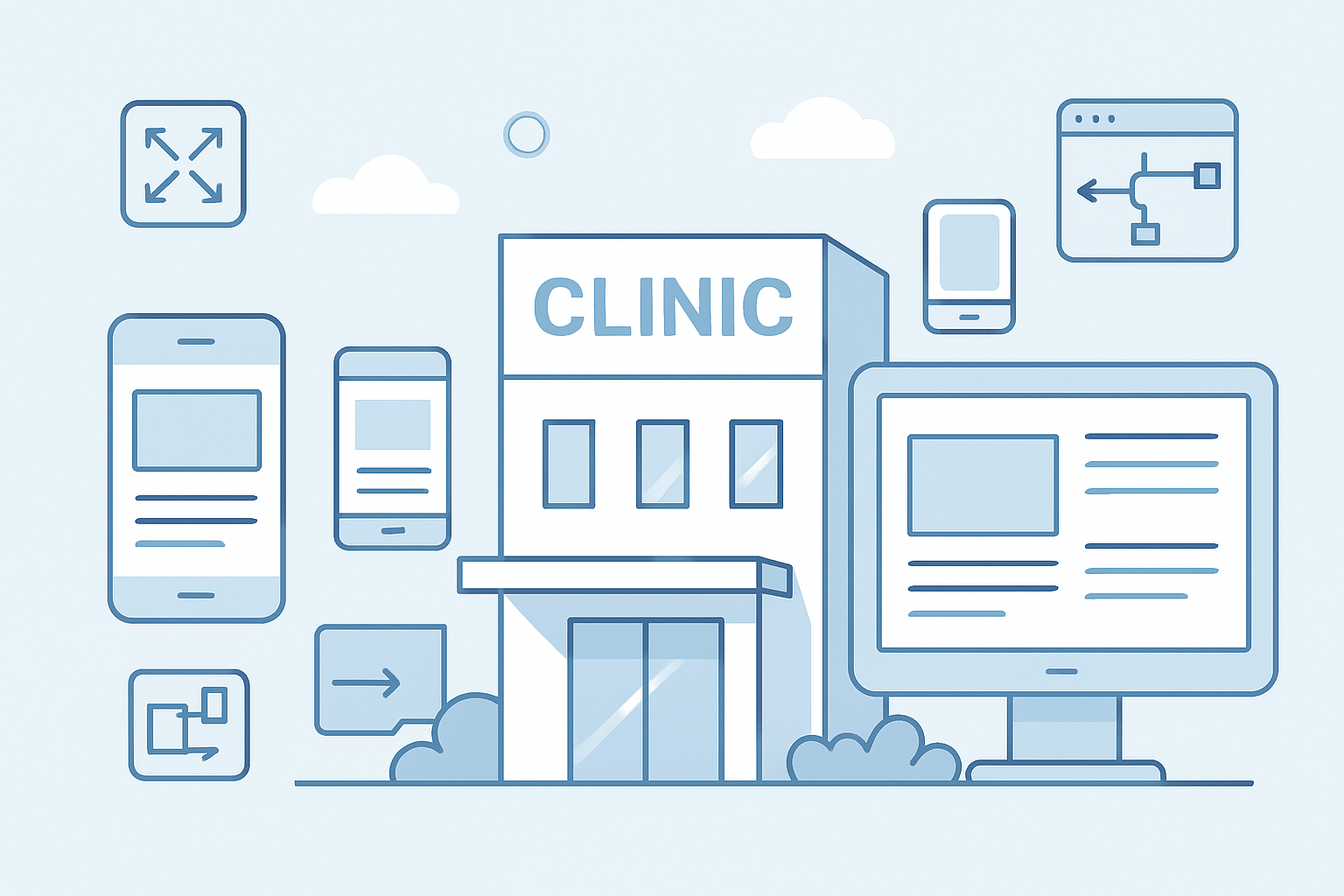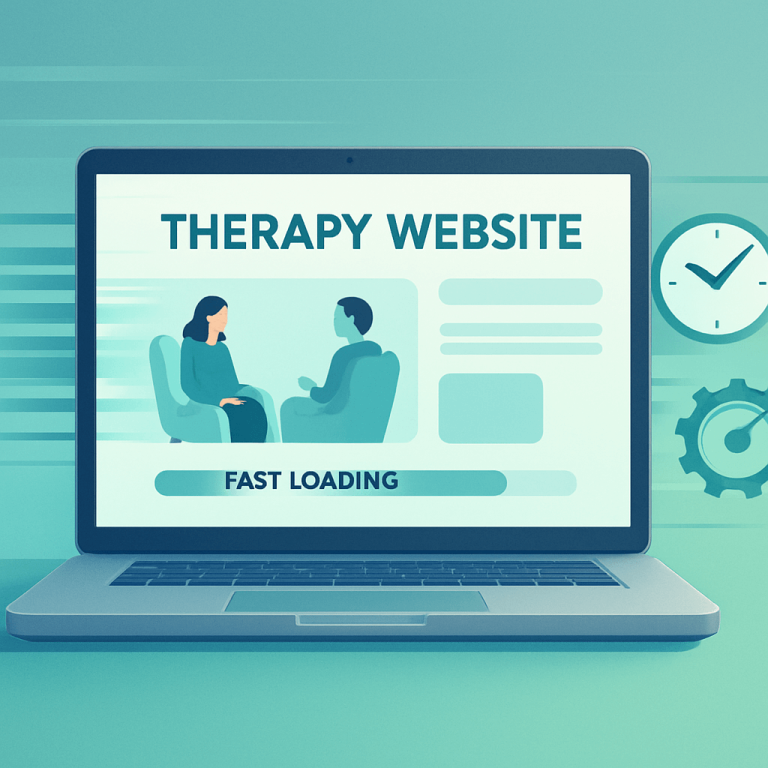5 Reasons Your Private Practice Website Must Be Mobile-Friendly

When was the last time you checked your private practice website on your phone? Is your therapist website optimized for mobile screens? If it is not, then, you might be missing out on potential clients. Many therapists believe that if the website is displaying and loading good on desktop, then it will also be loading fine on mobile screens too. But that’s not true all the time.
Due to small size of the mobile screens and variability in data speeds, your therapist website may not load and display in the same way as it is loading on a desktop/laptop screen. So, it’s important to look at that aspect too!
Today, most people looking for therapy services do so on their smartphones while commuting, lying in bed, or scrolling during lunch breaks.
If your website isn’t easy to use on a mobile device, you could be losing the chance to connect with clients before they ever book a session.
In this post, I have listed down five reasons why your private practice website must be mobile-friendly? Let’s go.
1. Most Clients Search for Therapists on Their Phones
In US alone, more than 87% of population is using mobile for internet. Also, studies show that more than half of all website traffic comes from mobile devices. That means your next therapy client is likely searching for “anxiety therapist near me” or “couples counseling in [city]” on their phone and not on a desktop computer. If your site isn’t mobile-friendly, you risk losing them in seconds.
If your private practice website doesn’t look good, layout breaks down on mobile screens, or load slow on a phone, many users will find it hard connecting with you. They will leave the website even without engaging and interacting. That means loss of clients.
So, check the website loading speed on mobile devices, work on responsive website layout.
2. Mobile-Friendly Websites Build Trust Instantly
Therapy is a deeply personal decision. Whenever someone is searching for a “therapist near me” they are expecting that they get the information of therapist seamlessly without waiting. They are already struggling with some problem. They need someone to help them quickly. But if the website will be difficult to navigate, with tiny or small text, disorganized, and broken layout, it quickly change their mind. They will lose trust in you.
A potential user is already feeling vulnerable and uncertain. And when they visit a website which is already broken, they lose interest and move on to the next website.
Whereas, when the website is properly optimized it builds instant trust with the user as it will be already having proper font size, clear navigation, loads fast on mobile, and have a easy way to contact the therapist.
3. Google Ranks Mobile-Friendly Websites Higher
Google is the biggest search engine in the world with a market share of 89.62. That means out of 100, 89 are using Google search engine to search and find the information. You as a private practice business owner can’t afford to remain hidden there.
Google now uses “mobile-first indexing,” which means it primarily looks at the mobile version of your site to index and decide how high you should rank in search results. If your site isn’t mobile optimized, it can push you down the rankings making it harder for local clients to even find you.
Google recommends several things for a mobile site. Like you should have high quality images which are not too small or low in resolution, use supported image formats, use the same URLs, mobile page content quality is as good as on the desktop page.
If you private therapy website is lacking these optimizations it’s time to look at it and change for better performance on Google.
4. A Smooth Mobile Experience Encourages Action
Unlike desktop devices where user stays on website, do proper research, scroll page, navigate to other pages on the website, and then decide their next step, mobile devices are different. Here, users need quick results. They don’t want to scroll endlessly till the last of the page. They want fast information. They want easy next steps: click to call, simple forms, or direct booking buttons. If they have to zoom in, scroll endlessly, or deal with broken menus, they’ll leave and try another therapist.
In short, no mobile user likes to visit a website which requires effort to navigate. Especially true for small mobile screens.
As a private practice website owner, always give the best user experience to your mobile users. If you have your therapist website designed in a way that all the important CTAs like forms, buttons, etc. are placed earlier in the content and not hidden deep in the page, the user will most likely stay.
They don’t want to navigate through several pages to get the information. Give them quick steps, and see your caseload increasing.
5. Mobile-Friendly = Future-Proofing Your Practice
With more and more people having access to mobile internet, optimizing for mobile screens can’t be ignored. The trend toward mobile browsing isn’t slowing down. It is and will rise in the future. It’s like information in their pocket.
As more people rely on smartphones for everything, from ordering groceries to booking therapy sessions, a mobile-friendly website ensures your practice stays relevant and accessible for years to come.
A mobile-friendly website builds instant trust, people remember your private practice, and even visit your website directly without searching online. That all happens when you have a good responsive mobile-friendly website.
Final Thoughts
Your website isn’t just a digital business card it’s the first impression many clients will have of your private practice. If the website is not mobile-friendly there are high chances that your potential user may leave the website without even engaging. Also, your rankings may also drop.
By making it mobile-friendly, you show professionalism, improve your chances of ranking on Google, and make it easier for potential clients to reach you.
If you want to know is your private counselling website is optimized for mobile then you can also take my is your private practice website mobile-friendly quiz for better insights.





